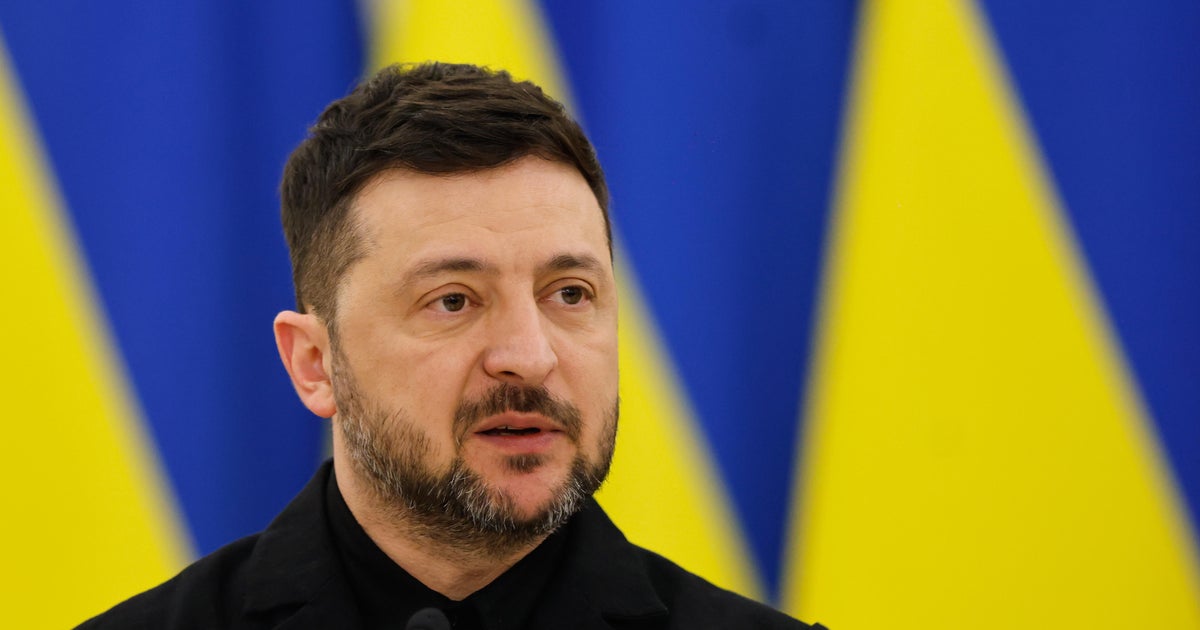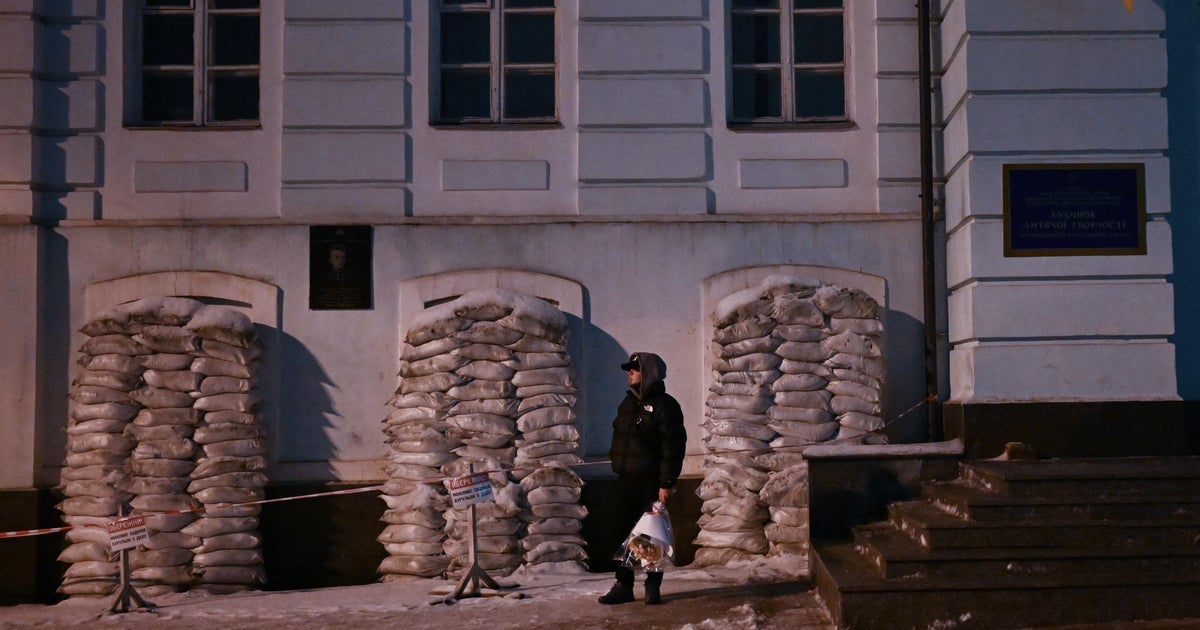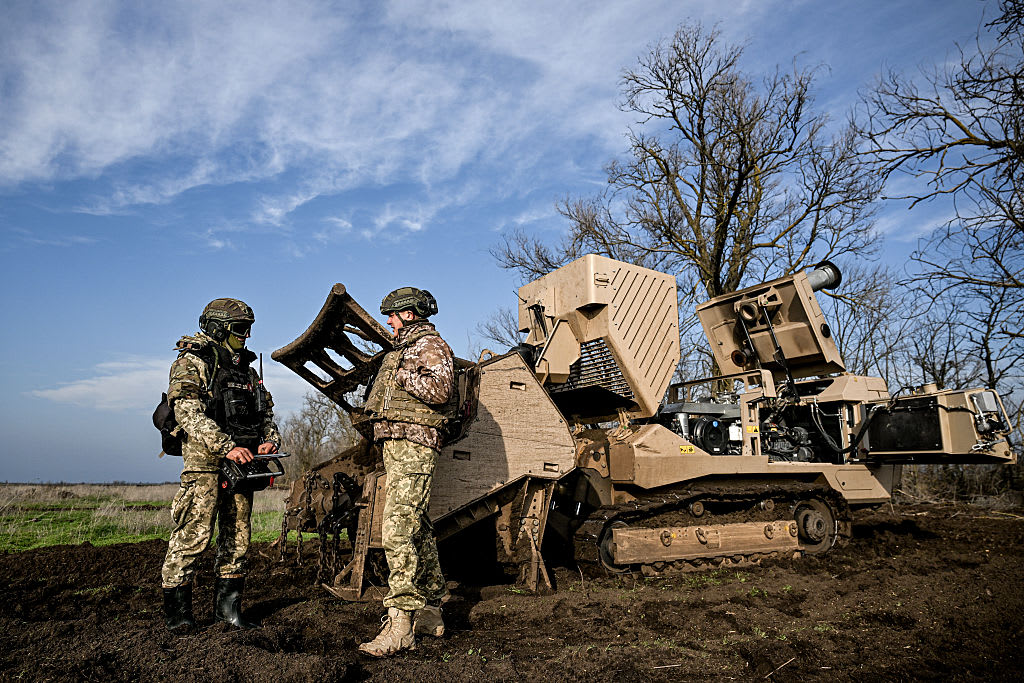Russia's ruble worth less than 1 cent after West tightens sanctions
Russia's currency is tumbling after Western nations on Saturday agreed to put crippling sanctions on the country's financial sector in retaliation for its invasion of Ukraine.
The ruble fell about 30% against the dollar Monday — making it worth less than 1 U.S. cent — after the U.S., European Union and United Kingdom announced moves to block some Russian banks from the SWIFT international payment system and to restrict Russia's use of its massive foreign currency reserves. The system is used to move billions of dollars around more than 11,000 banks and other financial institutions around the world.
The ruble recovered ground after Russia's central bank sharply raised its key interest rate Monday to shore up the currency and prevent a run on banks. But it was trading at a record low 105.27 per dollar, down from about 84 per dollar late Friday.
Early Tuesday, the ruble was at 104.51 to the dollar, down 3.2%. The Moscow Stock Exchange was closed again, as it was on Monday.
A weaker ruble could cause inflation to surge, potentially angering Russians whose budgets will be stretched by soaring prices. It will also add to strains across Russia's financial system.
A sharp devaluation of the ruble would mean a drop in the standard of living for the average Russian, economists and analysts said. Russians are still reliant on a multitude of imported goods and the prices for those items are likely to skyrocket. Foreign travel would become more expensive as their rubles buy less currency abroad. And the deeper economic turmoil will come in the coming weeks if price shocks and supply-chain issues cause Russian factories to shut down due to lower demand.
"It's going to ripple through their economy really fast," said David Feldman, a professor of economics at William & Mary in Virginia. "Anything that is imported is going to see the local cost in currency surge. The only way to stop it will be heavy subsidization."
A rapidly depreciating ruble could also slam Russian companies that need to issue debt to raise capital.
"The [ruble] has gone into a tailspin, and most Russian bonds, whether directly sanctioned or not, have seen prices drop to levels suggesting significant risk of default," analysts with TD Securities said in a research note.
Americans barred from transactions
In another move to isolate Russia's financial system, the U.S. Department of Treasury on Monday barred Americans from doing business with Russia's central bank, the country's ministry of finance and its sovereign wealth fund.
"This action effectively immobilizes any assets of the Central Bank of the Russian Federation held in the United States or by U.S. persons, wherever located," the Treasury Department announced.
U.S. officials said Germany, France, the United Kingdom, Italy, Japan, European Union and others will join in targeting the Russian central bank.
Tatiana Orlova of Oxford Economics called the moves partially cutting some Russian banks off from SWIFT and the freezing of its central bank's assets "crushing policies," noting in a report that war in Ukraine is "causing panic among Russian households and businesses."
The Ukraine crisis has caused turbulence in global financial markets. Russia's main equity market, the Moex, remained closed Monday. That appeared to be an effort to stop jittery investors from dumping their shares, according to Nicholas Cawley, strategist at DailyFX.
After surging on Friday on reports that Russian and Ukrainian leaders would meet this week, U.S. stocks were set Monday to open lower. Delegates from the two countries sat down Monday for their first direct negotiations since Russia launched its invasion five days earlier.
Capital Economics estimated in a report that Russia's gross domestic product is likely to shrink roughly 5% as a result of the sanctions on the country's economy.
People wary that sanctions would deal a crippling blow to the economy have been flocking to banks and ATMs for days, with reports in social media of long lines and machines running out of cash. Moscow's department of public transport warned city residents over the weekend that they might experience problems with using Apple Pay, Google Pay and Samsung Pay to pay fares because VTB, one of the Russian banks facing sanctions, handles card payments in Moscow's metro, buses and trams.
The Russian government will have to step in to support declining industries, banks and economic sectors, but without access to hard currencies like the U.S. dollar and euro, they may have to result to printing more rubles. It's a move that could quickly spiral into hyperinflation.
To halt the slide in the ruble, Russia's central bank on Monday hiked the benchmark interest rate to 20% from 8.5%. That followed a Western decision Sunday to freeze Russia's hard currency reserves, an unprecedented move that could have devastating consequences for the country's financial stability.
"With it now uncertain if Russia can even get their hands on their large stock of [foreign exchange] reserves (whatever the denomination), are sovereign bond holders going to get paid back?" Peter Boockvar, chief investment officer with Bleakley Advisory Group, said in a report to investors. "With the rubble down 19% today to a fresh record low against the dollar, good luck getting paid back if one holds a dollar denominated Russian bond."
The ruble lost much of its value in the early 1990s after the end of the Soviet Union, with inflation and loss of value leading the government to lop three zeros off ruble notes in 1997. Then came a further drop after a 1998 financial crisis in which many depositors lost savings and yet another plunge in 2014 due to falling oil prices and sanctions imposed after Russia seized Ukraine's Crimea peninsula.
It was unclear exactly what share of Russia's estimated $640 billion hard currency pile, some of which is held outside Russia, would be paralyzed by the decision. European officials said that at least half of it will be affected. That dramatically raised pressure on the ruble by undermining financial authorities' ability to support it by using reserves to purchase rubles.





